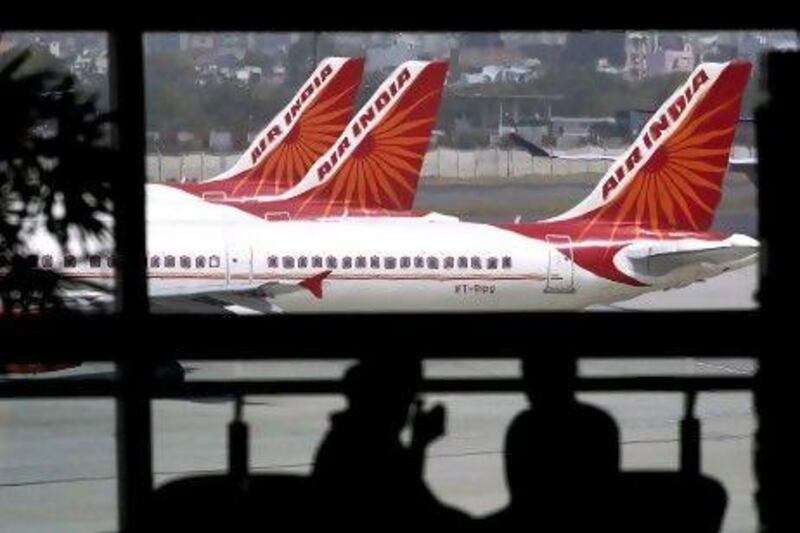Calls to open up Indian aviation to foreign companies have intensified as the sector's woes are expected to worsen after the government declined to provide a bailout.
The sector is in a dire state and industry bodies say bringing in foreign investors may be its last hope.
"[Airlines] need money to survive," said DS Rawat, the secretary general of the Associated Chambers of Commerce and Industry of India. "Allowing FDI [foreign direct investment] means airlines would get much-needed capital, technology know-how and it would become easier for Indian airlines to access global routes - allowing them to compete better.
"Investment would also improve the country's air traffic management infrastructure."
India does not allow foreign interests to own stakes in its carriers, but a ministerial meeting has been set up to tackle the issue, according to a report in The Economic Times. If the government decides to open the market, foreign investors could own anywhere from 26 to 49 per cent of an Indian airline.
The move would create a lucrative opportunity for several foreign carriers that have been eyeing the Indian market for years.
"Most foreign airlines that are already operating in India, including those based in the Gulf, would be keen to buy a stake in Indian airlines because it's the fastest-growing market in the world. No one wants to miss out," said Sharan Lillaney, an aviation analyst at Angel Broking.
Most of India's airlines are suffering financially, and five of the country's six main airlines are loss-making. Experts say the sector should have been liberalised long ago.
"India is the only country which distinguishes between a foreign institutional capital and foreign airline capital," said Kapil Kaul, the chief executive for South Asia at the Centre for Asia Pacific Aviation. "This was long overdue, and I think foreign airlines will bring in capital and strategic expertise."
Kingfisher, among other airlines, has been struggling to stay afloat and has reportedly sought government help for a bailout, and a proposal has been submitted to lenders.
But now, according to reports, the government has said there will be no public bailouts of private airlines. It continues to back the state-owned carrier Air India (AI).
"AI is a public-sector unit, so government has an obligation," said Manmohan Singh, the prime minister, according to local media. "But there as well, AI will have to become competitive. It will have to restructure its costs in line with the industry as a whole, because government cannot keep pouring money."
The sector's outlook remains challenging, analysts said, and local airlines may jump at the chance to start mergers-and-acquisitions talks with potential buyers.
"The cash-strapped Kingfisher is the most likely candidate to start negotiating with a buyer, but other low-cost carriers such as SpiceJet and IndiGo may also be interested in expanding their ownership base," Mr Lillaney said.
The airline sector received further bad news this week as India's aviation regulator slammed the country's airlines for poor safety and said many of the discount carriers had not reported incidents properly.





